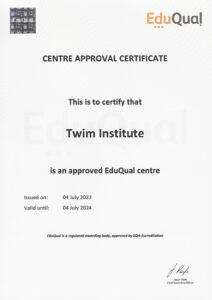
To be honest, this life has no balance true! And this is why when some people are struggling to lose weight, others want to gain more by all means. This might be due to some factors, one of which is lacking confidence especially when it comes to one’s physical appearance. Not to worry! If you happen to fall under the category of those struggling to gain weight and you have been unable to achieve this, this article is a must-read for you. Let’s go!
5 Nigerian Foods that Make you Add Weight
Bread
Bread can contribute to weight gain if consumed in excess, as it is a high-calorie and high-carbohydrate food. The type of bread you eat can also impact your weight.
White bread, for example, is made from refined grains that have been stripped of their fiber and nutrients, resulting in a less filling and more calorie-dense food. Eating too much white bread can contribute to weight gain over time.
Whole-grain bread, on the other hand, is made from whole grains that retain their fiber and nutrients. This type of bread can be a more nutritious option that can help you feel fuller for longer periods, potentially leading to fewer calories consumed overall.
It’s important to note that while bread can contribute to weight gain if consumed in excess, it’s not the sole culprit. A balanced diet that includes a variety of nutrient-dense foods and appropriate portion sizes is key to maintaining a healthy weight.
Fried Chicken
Yes, fried chicken is a food that can contribute to weight gain when consumed in excess. Fried chicken is often high in calories, unhealthy fats, and sodium. Consuming too many calories from fried chicken, combined with a sedentary lifestyle, can lead to weight gain over time.
However, it’s important to note that weight gain is ultimately determined by the number of calories consumed versus the number of calories burned through physical activity. Therefore, consuming moderate amounts of fried chicken as part of a balanced diet and engaging in regular exercise can still be compatible with maintaining a healthy weight.
Instant Noodles
One of the reasons why instant noodles can lead to weight gain is that they are often made from refined carbohydrates, which are quickly broken down and absorbed by the body, leading to a rapid rise in blood sugar levels. This can trigger insulin spikes and cause the body to store excess sugar as fat.
Additionally, instant noodles are often high in sodium, which can cause water retention and bloating, making you feel heavier and adding to the number on the scale.
Finally, instant noodles are typically low in fiber and protein, which means they are not very filling and can leave you feeling hungry shortly after eating them. This can lead to overeating and weight gain over time.
Margarine
Margarine is a processed food that is typically made from vegetable oils, water, salt, and sometimes other ingredients like emulsifiers, flavorings, and preservatives. While margarine is often promoted as a healthier alternative to butter, it can still contribute to weight gain if consumed in excess.
Like any other food, margarine contains calories and consuming more calories than your body needs can lead to weight gain over time. Margarine is also high in fat, and while some types of fat (such as unsaturated fats) are healthier than others, consuming too much of any type of fat can still contribute to weight gain.
In addition, some types of margarine may contain added sugars or other ingredients that can increase calorie and sugar intake, which can also contribute to weight gain.
Overall, while margarine can be a part of a healthy diet in moderation, consuming too much of it or pairing it with high-calorie foods can contribute to weight gain. It’s important to pay attention to portion sizes and balance your diet with a variety of nutrient-dense foods to maintain a healthy weight.
Groundnuts
Groundnuts, also known as peanuts, can contribute to weight gain if consumed in excess. This is because they are high in calories and fat. However, when consumed in moderation, groundnuts can be a healthy addition to your diet.
One ounce of roasted peanuts contains about 160 calories and 14 grams of fat, but they also provide a good source of protein, fiber, and various vitamins and minerals. These nutrients can help you feel fuller for longer, which can prevent overeating and subsequent weight gain.
Conclusion
In conclusion, Nigerian cuisine offers a wide variety of delicious and flavorful foods that can contribute to weight gain if consumed in excess. However, it’s important to remember that moderation is key, and a balanced diet with regular exercise is essential for maintaining a healthy weight and overall well-being.
So, enjoy your favorite Nigerian dishes in moderation and embrace a healthy lifestyle for a happier and healthier you!




